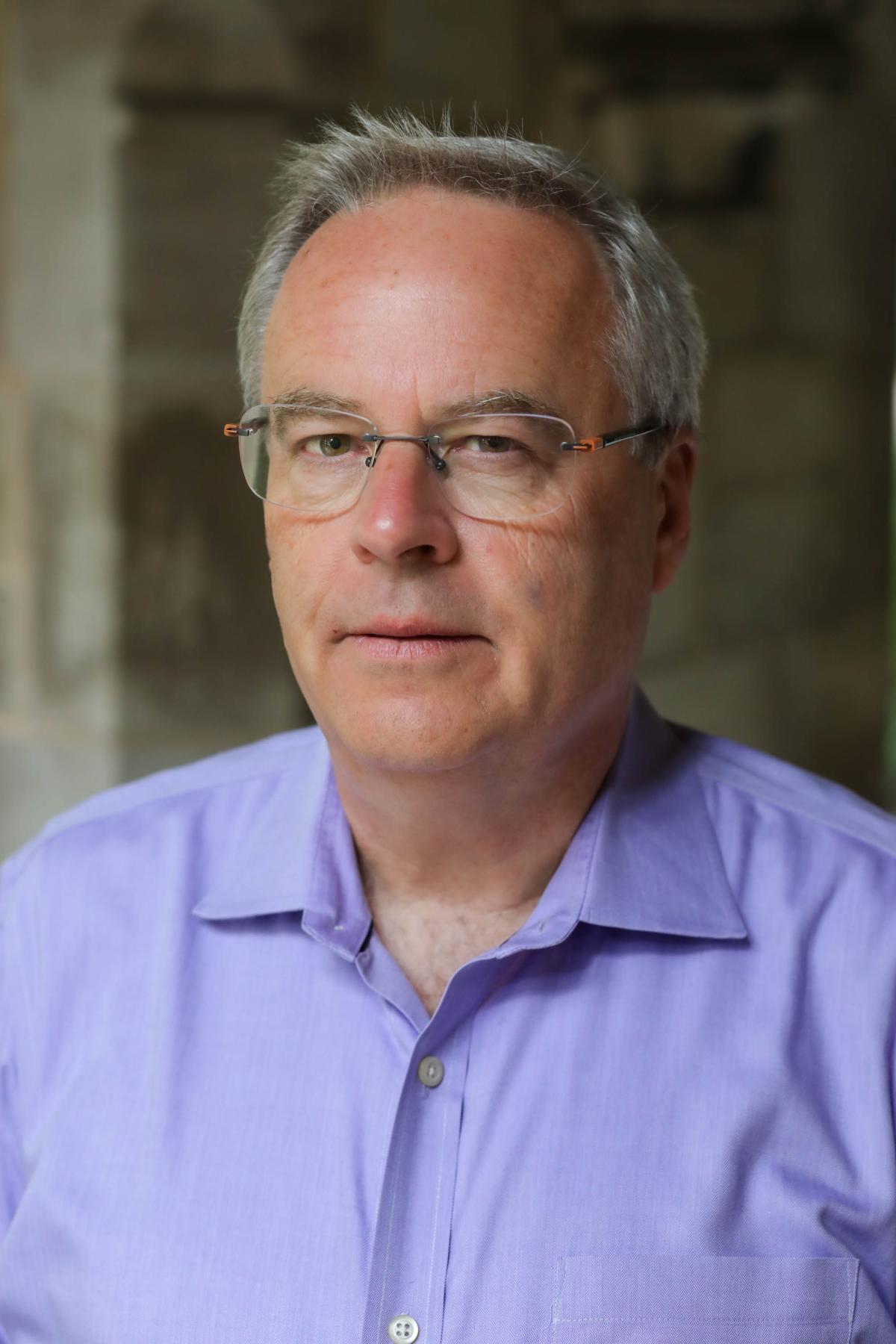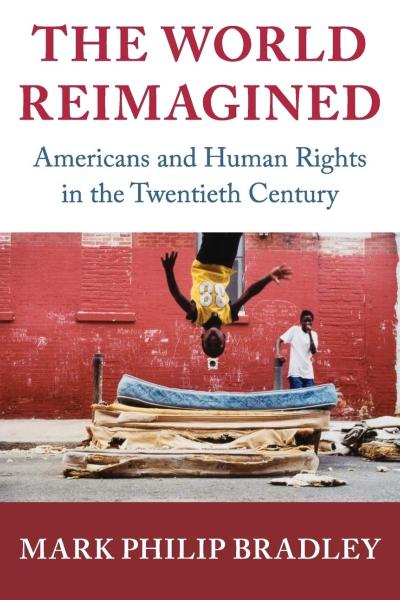
In Brief
- Bradley's current research, on the concept of the Global South, was inspired by a Pozen Center Conference.
- His previous work traced Americans' relationship to human rights over time.
- As faculty director, his broad intellectual sensibility has shaped the interdisciplinary character of the Pozen Center.
In the spring of 2017, UChicago historian and Pozen Center Faculty Board Director Mark Bradley spent a weekend listening to artists from around the world talk about the relationship between their work and human rights. As a result, he soon found himself thinking differently about his own scholarship.
The artists were gathered for a summit the Pozen Center co-sponsored with the Gray Center for Arts and Inquiry and the Logan Center for the Arts. It was organized around a question: “What is an Artistic Practice of Human Rights?”
Bradley, already a prominent historian of human rights, was in the midst of developing his next research project. His goal was to trace how the concept of the Third World was replaced over time by the concept of the Global South, and with what effects. In his view, this shift was more than just the replacement of one phrase with another; the Global South, he argues, was “a new conceptual container, one with a completely different intellectual sensibility about being in the world,” including about human rights.
“Having the Pozen Center be a center of gravity for interdisciplinary exchanges is a wonderful thing.There are conversations about human rights that happen here that don’t happen anywhere else. People get to talk to each other across disciplines, and that changes the work they’re doing for the better. I very much include myself.”
Bradley was grappling with how to evoke this shift as effectively as possible. What could he hold up as evidence? Listening to artists from Chicago, Nigeria, Palestine, Argentina, and elsewhere talk about the ways they saw their work, and the art world in general, responding to political developments, he started wondering if part of the answer might be found in the cultural sector.
“Art is useful for historians because there are literal objects,” Bradley says. “You can see them, and see how people responded to them. You can look at which artists got their work shown where, and look back on conversations about why. And you get a window on people’s understanding of the world.”
Going forward, the decision to engage with art fundamentally shaped Bradley’s research agenda. He was soon taking trips to Southeast Asia (his original area of specialization), researching the region’s artists (including the Indonesian painter and installation artist Heri Dono and the Singapore-based performance artist Amanda Heng) and their interactions with the global art world. These interactions track the growing influence of the idea of the Global South, plus related ideas like decolonization, cultural restitution, and sexual rights, which Bradley sees playing a major role in the next generation of human rights scholarship. This research, supported in part by a 2020 Guggenheim Fellowship, will constitute a major thread in Bradley’s next book, When The World Went South, currently under contract with Yale University Press.
working across disciplines
This was not Bradley’s first experience with an interdisciplinary encounter lighting a spark. In fact, his own entry into human rights scholarship was catalyzed by an interdisciplinary UChicago conference on torture organized by Michael Geyer, the co-founder of the University's Human Rights Program, which went on to become the Pozen Center.
At that conference, Bradley was impressed by the power of presentations by anthropologists, sociologists, psychologists, and activists, and also by the relative absence of contributions from historians. “History,” he recalls, “had been rather late to human rights.” The possibility of staking out new territory – charting a history that hadn’t been told and retold by multiple waves of historians – was, he says, “both liberating and exciting.”
The result was The World Reimagined: Americans and Human Rights in the Twentieth Century, released in 2017 by Cambridge University Press. Bradley examined how ordinary Americans first came to understand the concept of human rights in the immediate aftermath of World War II; how the idea mostly vanished from American consciousness in the Fifties and Sixties; and how it returned in the Seventies, in a new form influenced by activism and political developments in the rest of the world.
Writing in Foreign Affairs, G. John Ikenberry hailed The World Reimagined as a “landmark book,” and academic reviewers consistently praised Bradley’s wide range of reference points. As one reviewer put it: “Bradley discusses case law, works of literature, philosophy, jurisprudence, and visual sources with the same apparent ease and flow.”
Shaping the supportive pozen Environment
As the Pozen Center’s Faculty Director, Bradley’s intellectually voracious approach has made him a perfect steward for the Center’s mission to be a truly interdisciplinary space.
He spearheaded the creation of both the human rights major and a human rights sequence in the undergraduate Civilization Studies Core, flexibly designed to be teachable by Pozen Faculty Board members from across the university. He has overseen collaborative interactions between Pozen doctoral fellows, drawn from all disciplines, as they read and respond to each other’s work. He has helped organize Pozen-sponsored conferences with participants from every field of academia, plus human rights practitioners. And he has facilitated the diverse composition of young human rights scholars thesis committees.
“Having the Pozen Center be a center of gravity for these interdisciplinary exchanges is a wonderful thing,” says Bradley. “There are conversations about human rights that happen here that don’t happen anywhere else. People get to talk to each other across disciplines, and that changes the work they’re doing for the better. I very much include myself.”
-
Learn about "Cultures of Restitution," a May 3, 2024 workshop that Bradley's research on the Global South inspired him to co-organize.
-
Read The World Reimagined: Americans and Human Rights in the Twentieth Century.
-
Look back at the 2017 “What is an Artistic Practice of Human Rights?” conference.
-
Watch Bradley interviewing key players in the Pozen Center's founding about their vision.

